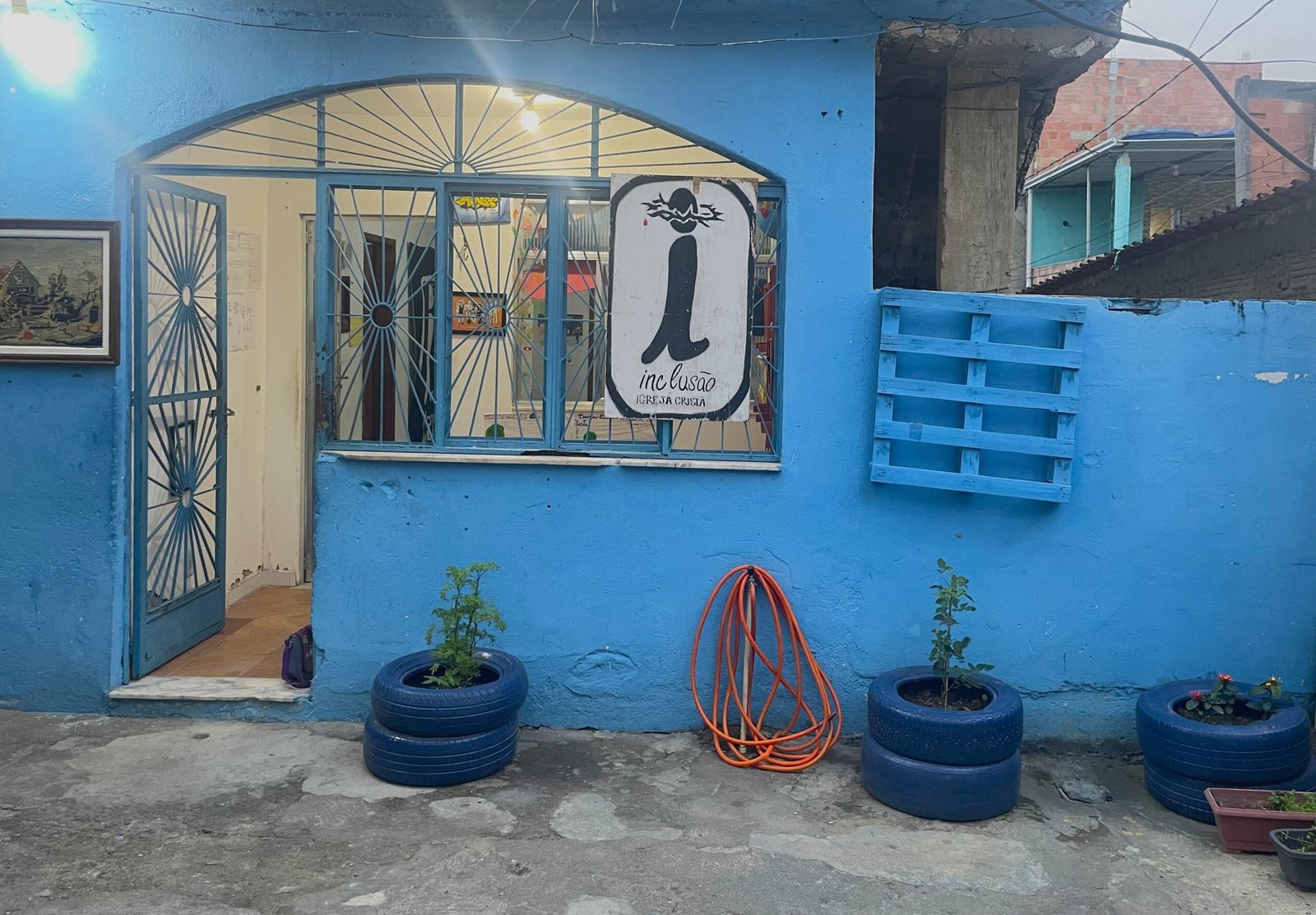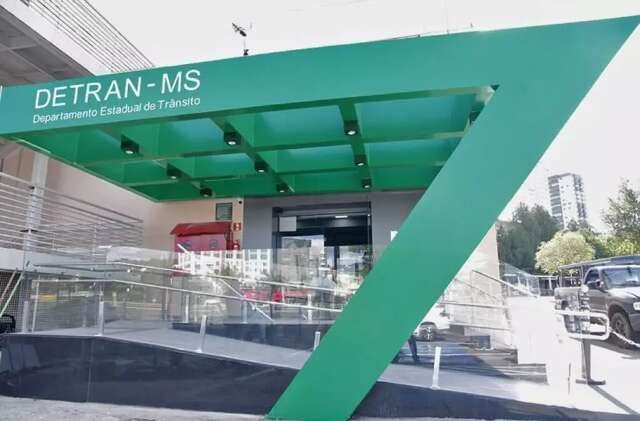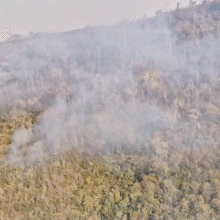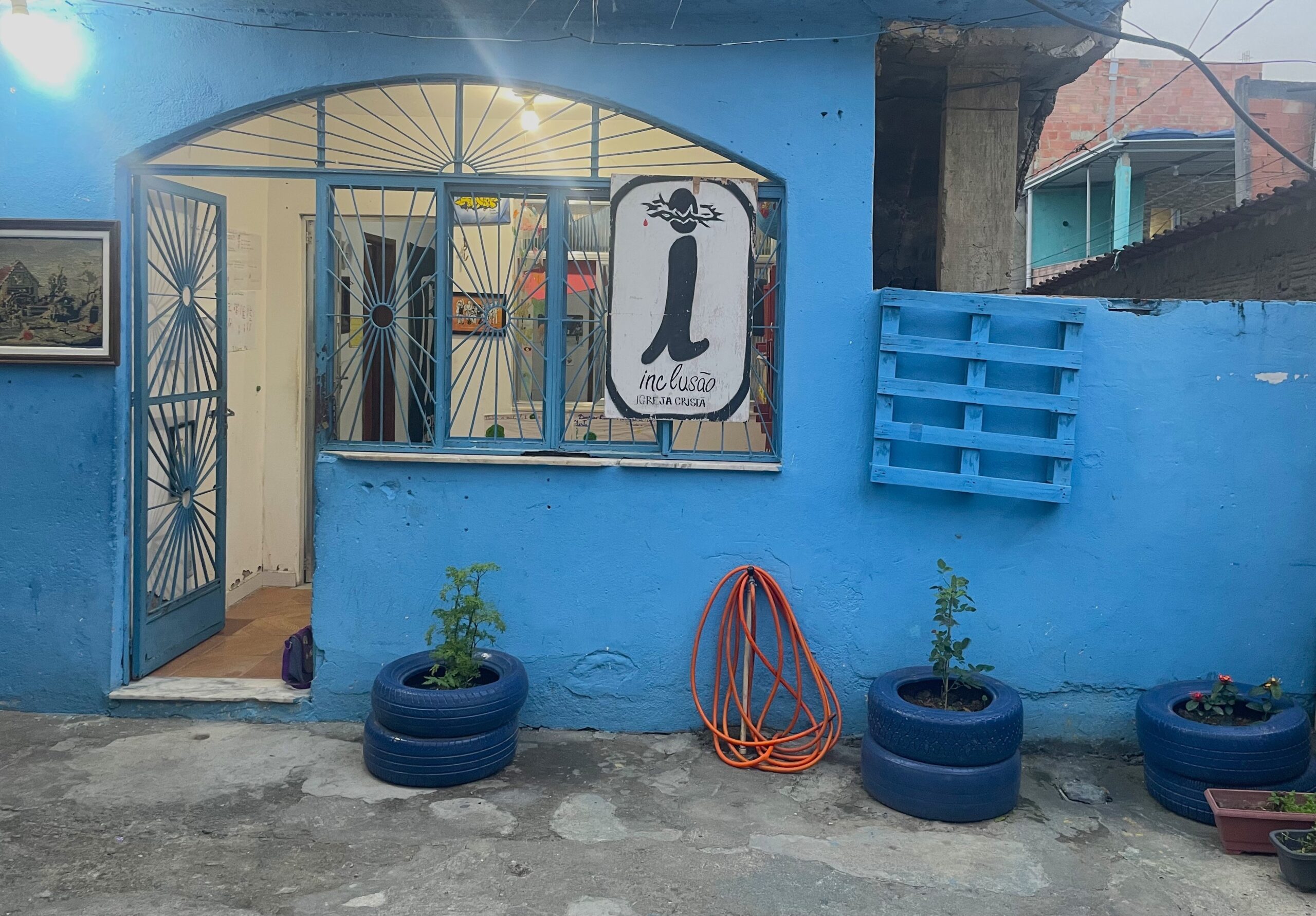
This article is part of a series of profiles of initiatives in Rio de Janeiro’s Sustainable Favela Network.
Initiative: Inclusion Project (Projeto Inclusão)
Contact: Facebook | Instagram | WhatsApp +55 (21) 964686394 and 976688714
Year Founded: 2014
Community: Éden, São João de Meriti (in Greater Rio de Janeiro’s Baixada Fluminense region)
Mission: Transforming lives through the love of others, education, sports and culture.
Public Events: The project offers a range of activities open to the public, including handicraft fairs and collective action clean-ups that promote sustainability and environmental conservation. They also host lively Festa Junina celebrations. Event details are shared on the project’s Instagram profile and through local WhatsApp groups.
How to Contribute: Volunteer your time, donate materials and goods (such as snacks for the kids, school supplies, etc.), or make financial contributions.
Tucked away on a side street in Éden, a friendly-looking blue building with a small courtyard serves as home to the Inclusion Project. A schedule posted on the wall highlights the wide range of activities and resources offered to the community—from chess to poetry, literature to soccer. The project also provides therapeutic support, with a psychologist, a neuroeducational specialist and speech therapist assisting residents with learning challenges, trauma and emotional well-being. Currently partnering with Gerando Falcões—a national organization born in the favelas of São Paulo recognized for strengthening grassroots initiatives across the country—the project offers income and employment opportunities through training courses. Many families in Éden, a neighborhood in São João de Meriti—a municipality in Greater Rio’s Baixada Fluminense region—can only afford the bare essentials to meet their needs. Through partnerships with other organizations, institutions and private supporters, the Inclusion Project works to bridge these gaps by offering access, care, and opportunities to the community.
How It All Started: Origins and Teaching Philosophy
The Inclusion Project has been strengthening and expanding the sociability, self-awareness and autonomy of Éden’s residents since 2014. Advocating for equity—especially for children and youth—the initiative consistently develops creative and thoughtful ways to promote education and foster knowledge within the community.
“It’s a space where [residents] can just drop by, come in, and stay… because they feel at home. And that’s the whole point—for them to truly feel at home, genuinely welcome.” — Élida Nascimento
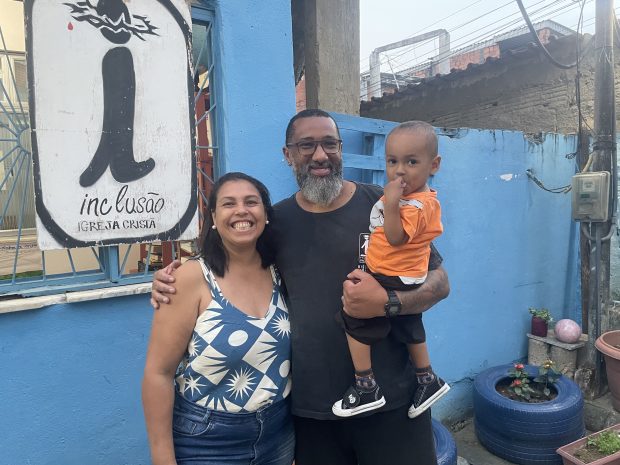
Founded by educator Élida Nascimento and her husband, Marcos Antônio Júnior, the Inclusion Project has always been centered on education. While working at a school, Nascimento noticed that many of her students were struggling academically, with some having been held back several grades at a very young age. The lack of motivation and joy in learning she observed in them both concerned and deeply distressed her. Seeking to understand the root causes of these challenges, the initiative was born.
Nascimento and Júnior did not initially set out to found an institution; rather, the idea took shape as they saw how non-formal educational support led to better academic results, increased joy in learning, and social transformation. What began as a small initiative to assist a group of ten children quickly expanded, with another group following soon after.
Since the very first course in 2014—focused on teaching literacy to ten children—Nascimento has ensured that her approach differs from the traditional methods used in formal education. A key element of the Inclusion Project’s methodology is drawing content from personal life experiences and highlighting connections between curriculum topics and their relevance to the children’s daily lives. The approach also emphasizes the recognition and development of what Nascimento describes as “multiple intelligences,” encouraging children to discover their unique strengths and talents rather than constantly comparing themselves to others.
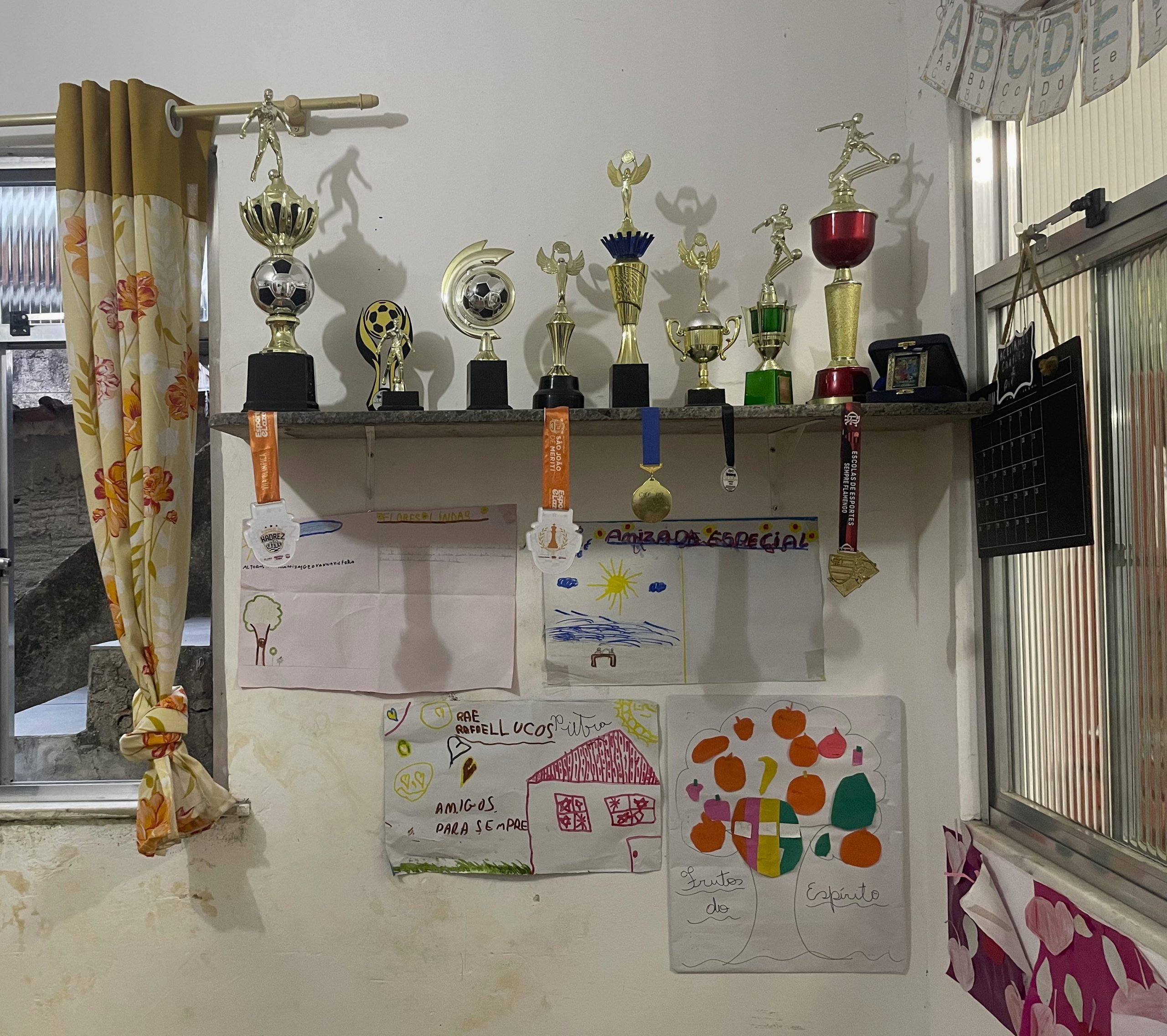
The way education and knowledge are introduced to participants is light and engaging, often incorporating play, storybooks, music and sports. In this way, the courses offered by the Inclusion Project generate more impact than might appear at first glance. Subtly, participants develop self-confidence, respect and self-esteem. They learn to appreciate community bonds and recognize the value of intangible resources such as good health and education.
“In our country, we lose a lot simply due to a lack of information—real information, knowledge… There’s still a real lack of information. Even though we have full access to the Internet today, information still doesn’t reach people in clear ways. This makes things much more difficult.” — Élida Nascimento
Access, Dignity and a Sense of Belonging
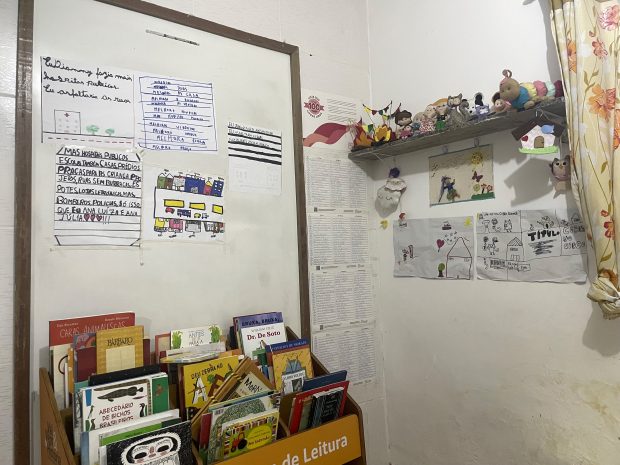
A quick glance at the organization’s Instagram profile reveals just how much thought, care and awareness go into each planned activity. Reading workshops, for example, foster empathy by encouraging children to step into someone else’s shoes, experience different realities, and see the world from another perspective. They also strengthen family bonds, inviting parents and children to read together. Sports and cultural activities are just as intentional. Soccer is more than a game—it teaches teamwork, inclusion, and a sense of belonging. Capoeira, beyond being an art form and physical exercise, promotes respect, discipline and cooperation while celebrating Afro-Brazilian culture. In a predominantly Black community like Éden, these activities offer not just movement but a deeper connection to history, identity and the diversity that shapes the community and country as a whole. Every post, whether about literature, sports or the arts, reflects the project’s carefully crafted pedagogical approach—each detail thoughtfully designed to educate, empower and bring people together.
While the Inclusion Project also offers a variety of courses specifically for adults and seniors, its core focus remains on supporting children and teens. Over time, the team found that by working with the children of Éden, they naturally reached its families. Today, the initiative is widely known throughout the favela. Education through sports, art, literature and music is seen not just as a tool for individual growth, but as a means of strengthening the community as a whole.
Despite the positive impact the initiative has had on many families, daily life in the favela still brings significant challenges. Most public services and cultural activities are only available elsewhere in the city, forcing residents to walk long distances or spend money they don’t have on public transport. The Inclusion Project occasionally helps cover these costs, but resources are limited.
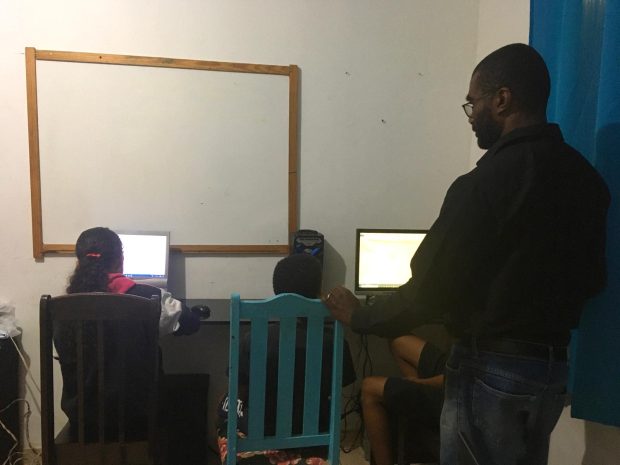
Still, the organization moves forward, offering a consistent weekly schedule that includes poetry, reading, computer classes, soccer, chess and capoeira. Even when activities have to be scaled down, the focus remains on providing meaningful access to education and culture within the community itself.
“People think they need to leave here to live well, but that’s not true. You can live well here! You can have access here. Is it harder? Yes. But it’s possible. It’s a process. We really try to work on that, too—to shift people’s way of thinking and talk about a sense of belonging: ‘I like it here. I know my neighbors. There’s a good course nearby, there’s access… there’s quality of life in my community.’” — Élida Nascimento
Looking Ahead
With the support of volunteers and partner organizations, the Inclusion Project hopes to launch a college prep course soon, for students aiming to take the vestibular—Brazil’s university entrance exam. There are also plans to eventually offer the exam on-site, turning the space into an official testing center and further reducing barriers to higher education for local residents.
Another goal is to expand the technology program. As the job market becomes increasingly digital, the initiative aims to provide more in-depth computer training to help children and teens from the community gain practical skills and improve their future employment opportunities.
Future plans for new courses are just as diverse as the community’s needs—covering topics such as motherhood, environmental awareness and sustainability. As members of the Sustainable Favela Network (SFN), founders Élida Nascimento and Marcos Antônio Júnior have gained valuable learning experiences, forged key partnerships, and found renewed motivation to keep doing what they do best: building hope, knowledge, and opportunities from within their own community.
For more information or to get involved, contact the Inclusion Project through their social media channels on Instagram, WhatsApp and Facebook.

